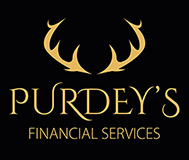For confidential advice on any further questions you might have please call us today to see how we can help. Alternatively please submit an enquiry and we will contact you, our advice is offered freely, confidentially and without obligation.
FAQs
There are no hard and fast rules and each case will be assessed on merit. In general terms we advise our clients to be prepared to deposit circa 25% to 30% of the property or business value. ie a LTV in the range 70-75%. Mortgages for pubs will generally be limited to 60% to 65% LTV due to the higher risks associated with this sector of the market. Sitting tenants can often secure a higher advance.
With a Property Development loan much depends on the type of project being undertaken, the overall borrowing requirement and the anticipated profit margin that project will generate. In addition the proven experience of the developer, their financial standing and / or the proposed contractor will also count heavily towards the underwriting decision.
In general terms yes. If you are buying a business trading from freehold premises we will obtain a professional report to verify the overall value of the business goodwill etc which is sometimes referred to as ‘market value’ or MV1. Subject to satisfactory confirmation it is usually possible to secure an advance against the overall business valuation. Where the purchase of a trading business also includes machinery, vehicles equipment, stock etc. it is generally more appropriate to structure a separate loan to acquire these assets on a short- term lease or stock finance arrangement.
When an underwriter is assessing a mortgage application the key criteria is the applicants ability to afford the loan repayments – sometimes also referred to as a ‘stress test’. Many mortgages will offer an ‘easy start’ period on interest only terms but most mortgage lenders wish to see both capital and interest repaid thereafter. In assessing your ability to repay the loan the underwriter will look at business income / profits via any accounts held and any other sources of confirmed income that you have. In situations where you are renting business premises and wish to purchase a freehold property (perhaps as a sitting tenant) then the rent you pay will be assessed as an ‘add back’ when looking at the overall position.
The applicant will have no fees to pay to secure an ‘agreement in principle’ ( AIP) offer from the mortgage provider – we offer this service free of charge. Once the AIP is accepted by the client it will be necessary to schedule and pay for any valuation report(s) needed by the underwriter. The cost of which will vary dependant on the size and scope of the project but on commercial schemes we normally advise to budget £2 per £1,000 of property value.
After the valuation reports confirm a positive and viable loan proposition the lender will issue the formal offer subject to legal due diligence. At which point a non – refundable commitment fee may be payable by the client to cover underwriting costs – this is generally deducted from the loan set up fees. Some lenders will require their own legal costs to be covered by the client though it may be possible for the clients / lenders solicitor to represent both parties. In addition to the interest charged on the mortgage or development loan there will generally be a set up fee of between 1% and 3% of the loan
ERC stands for “Early Repayment Charges” generally applied on longer term Commercial Mortgages ( to protect the lenders anticipated margin on the deployment of the funds) if the loan is redeemed in the early years. Many lenders will charge ERC’s up to a three or five year point in the loan usually on a reducing scale but these can be as high as 5% of the mortgage amount if a facility is repaid in year 1.
